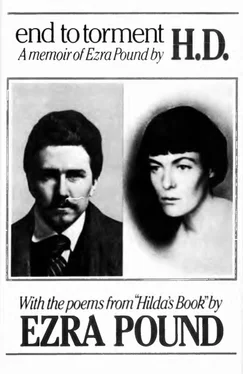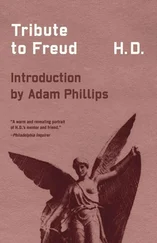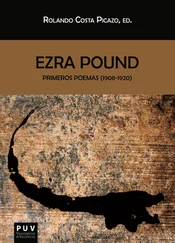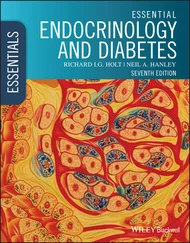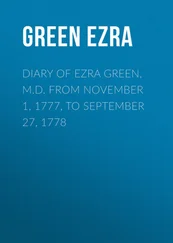They asked him to leave. 17My father said, “Mr. Pound, I don’t say there was anything wrong this time . I will not forbid you the house, but I will ask you not to come so often.” “ What is it? ” “I found her in the snow, when I went to post a letter. She was stranded from a travelling variety company. She had nowhere to go. I asked her to my room. She slept in my bed. I slept on the floor.” “What is it? There is more to it than that. Cousin Edd knows people in Wyncote who told him—.” But they did not tell me what it was they told him. “What is it? Cousin Edd knows some people in Wyncote—.” “O— that —and I had thought that our Cousin Edd was a decent old chap.” A clergyman, a cousin of my mother’s, had told her—“What? what? what?”
“They say in Wyncote that I am bisexual and given to unnatural lust.” I did not understand the implication of the words. Nowadays any sophisticated teenager would laugh at them. But this is—1906? 1907?
“You must come away with me, Dryad.” “How can I? How can I?” His father would scrape up enough for him to live on. I had nothing. “Anyway,” an old school friend confided, as if to cheer me up, “they say that he was engaged to Mary Moore, anyhow. Bessie Elliot could have had him for the asking. There was Louise Skidmore, before that.” What is it? What is it? The engagement, such as it was, was shattered like a Venetian glass goblet, flung on the floor.
Erich said, when I read this last section to him, this afternoon, “But you did not say you were actually engaged.” “It’s implied. I didn’t read all the pages to you. I did read the section about Frances filling a gap in my life, after the engagement was broken. Anyway, would she, this — the period Miss of our narrative, have gone on with the fiery kisses that I speak of, in the beginning, unless there had been — had been — at least, an understanding?” “You didn’t say he gave you a ring. Did he give you a ring?” “Of course — how German you are—.” “It was announced, everyone knew it?” “O, how you get hold of the unimportant details. Yes, no. I mean, it was understood but my parents were unhappy about it and I was shy and frightened. I didn’t have the usual conventional party — lunch, dinner or announcement dance, if that is what you mean. But what does it matter?”
“His parents came to see you?” “Of course.” “They were pleased?” “Very — mine weren’t, as I say. Mrs. Pound brought me an exquisite pearl pendant.” “Then, you were engaged. Did you give the ring back?” “Of course.” “Did he write to you when he went to Venice?” “Yes — yes — yes — yes — yes—.”
March 14
“What did your father mean by ‘I don’t say there was anything wrong this time? ’ Did he know about it? How did he know about it? You don’t say how he knew about it.” “Good Lord — it’s implied — there was talk—.” “Who talked? What did they say?” “How could I know.” “Didn’t you ask?” “No — no — no — no—.”
“Was this a Quaker college? Was it far from Philadelphia?” “I don’t think Quaker — Middle West somewhere — not very near—.” “It must have been very hard for you in a family like that. Were you jealous of this girl he found who slept in his bed?”
“How could I be jealous of anyone who slept in his bed?” “Then you didn’t—?” “Do you expect me to go into biological, pathological details?” “Yes.” “But why?” “Because it’s interesting and because I always knew there was something you wouldn’t tell me.”
“Were you there when your father told him not to come again?” “Yes — but he said not to come so often.” “Did he come?” “Yes — no — stop — my half-brother and sister-in-law lived in a wing of the house. It was a large house. We met there — sometimes in a friend’s house—.” “Well, tell me—.”
“The next time, maybe; Monday, maybe.” “I could come sooner.” “No, we arranged the four days. No, it’s five o’clock. You’ll miss your train—.” “I ordered the taxi.” “Well, anyhow, it’s five o’clock — you have your next session.…”
Session? He called our meetings, our visits, tea sessions. He comes three or four times a week. He has his own studio apartment in Zürich now, where he sees his analysands and patients. I went there a number of times, summer before last, but nothing “happened.” Did he expect, did I expect, anything to “happen”?
The years were immaterial. He liked my light summer dresses. Ezra was not consciously a love-image. But perhaps he lurked there, hid there, under the years. In making me feel young and happy, Erich prodded him out.
We were curled up together in an armchair when my father found us. I was “gone.” I wasn’t there. I disentangled myself. I stood up; Ezra stood beside me. It seems we must have swayed, trembling. But I don’t think we did. “Mr. Pound, I don’t say there was anything wrong…”
“Mr. Pound, it was all wrong. You turn into a Satyr, a Lynx, and the girl in your arms (Dryad, you called her), for all her fragile, not yet lost virginity, is Maenad, bassarid . 18God keep us from Canto LXXIX, one of the Pisan Cantos .
Mr. Pound, with your magic, your “strange spells of old deity,” 19why didn’t you complete the metamorphosis? Pad, pad, pad … come along, my Lynx. Let’s get out of here. You are suffocating and I am hungry. You spoke of grapes somewhere — you were starving.
March 15
“What did you feel when this — this Walter told you that?” “Look — it’s impossible to say. I felt bleak, a chasm opened—.” “But you said that you had loved this American girl, this Frances — and you were going around with Richard—.” “I don’t know what I felt. I had met Walter years before, in America, in a house the Pounds had for the summer. Ezra had come back from Europe. He asked Frances and me to this house to hear Walter play. Ezra had had a grand piano sent out from Philadelphia. ‘O,’ Ezra said, ‘they said, “ Walter Rummel ”—and anything was had for the asking.” “A concert pianist?” “Yes.” “An American?” “His grandfather was the Morse-Code Morse. His name was Walter Morse Rummel. His father was a German. Mrs. Shakespear was very fond of him at one time. Richard and I had seen a good deal of him in Paris.” “You were married then?” “No.”
“You mean, Ezra told people that you were engaged to him?” “I don’t know — only Walter said, ‘I think I ought to tell you, though I promised Mrs. Shakespear not to — don’t let her know or anyone. But there is an understanding. Ezra is to marry Dorothy Shakespear. 20He shouldn’t tell other people or imply to other people that he — that you—.’ ” “Did you speak to Ezra of this?” “No.”
“What exactly did he say to people?” “O — I don’t know.…” Drifting. Drifting. Meeting with him alone or with others at the Museum tea room. We all read in the British Museum reading room. Dark walls and statues that looked dingy. Frances had gone home. I could wait till my parents came. My father, at 70, had retired from the University. My mother wrote, “We could meet in Genoa.” I had my own allowance now. Drifting? “But Dryad,” (in the Museum tea room), “this is poetry.” He slashed with a pencil. “Cut this out, shorten this line. ‘Hermes of the Ways’ is a good title. I’ll send this to Harriet Monroe of Poetry . Have you a copy? Yes? Then we can send this, or I’ll type it when I get back. Will this do?” And he scrawled “H.D. Imagiste” at the bottom of the page.
I was hiding. There was the heroic sequence, those last years in London. “What is it you are hiding?” Erich Heydt insisted. I was hiding myself and Ezra, standing before my father, caught “in the very act” you might say. For no “act” afterwards, though biologically fulfilled, had had the significance of the first demi-vierge embraces. The significance of “first love” can not be overestimated. If the “first love” is an uncoordinated entity, Angel-Devil — or Angel-Daemon or Daimon, Séraphitus-Séraphita — what then? Find a coordinated convention, Man-Hero who will compensate, complete the picture. By what miracle does the mariage du del et de la terre find consummation? It filled my fantasies and dreams, my prose and poetry for ten years. But in the end, intellectual and physical perfection, the laurel wreath of the acclaimed achievement must be tempered, balanced, re-lived, re-focused or even sustained by the unpredictable, the inchoate, challenged by a myth, a legend — the poet (Vidal, shall we say), changed to Wolf or Panther, hunted down and captured.
Читать дальше
